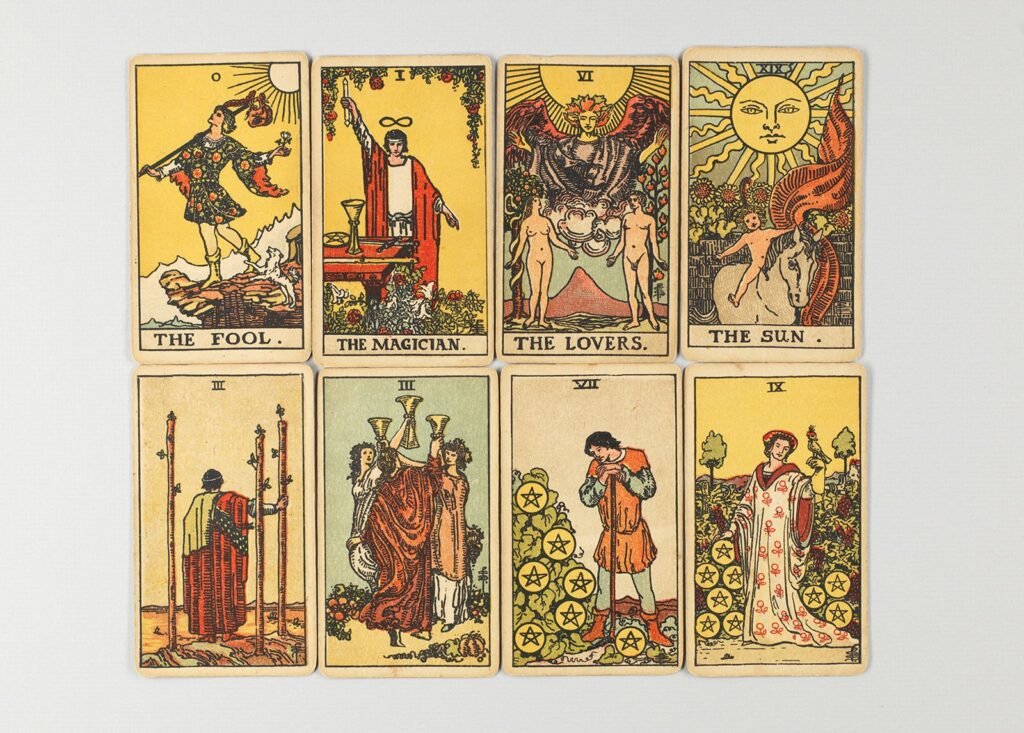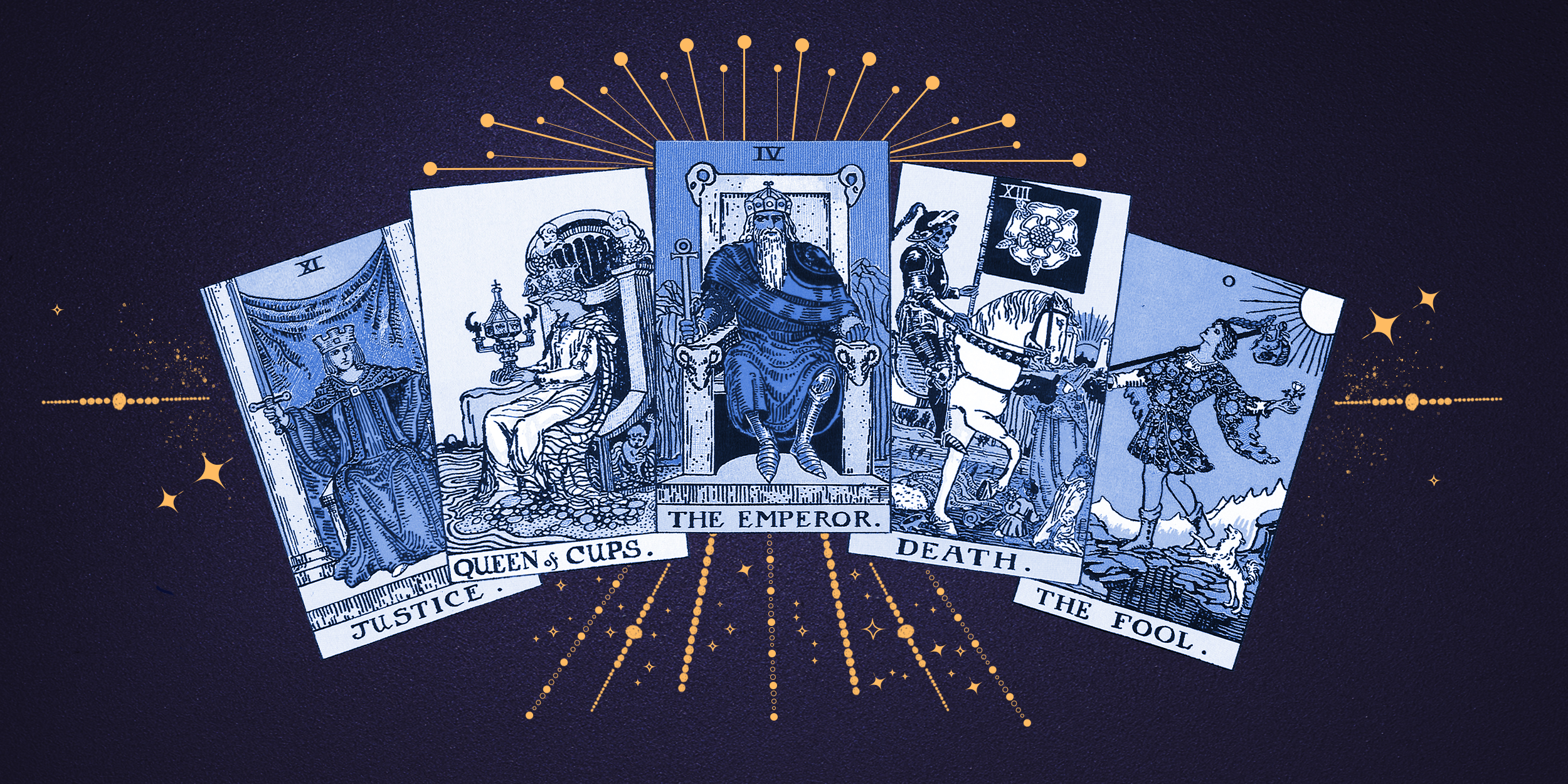Have you ever wondered what kind of people believe in tarot? It’s a fascinating question that opens up a world of curiosity and exploration. Tarot, often associated with divination and fortune-telling, has captivated the minds and hearts of many individuals throughout history. From celebrities to spiritual seekers, all sorts of people have found solace and guidance in the mystical art of tarot. Whether they believe in the power of the cards or see it as a tool for self-reflection, tarot attracts a diverse range of individuals who are drawn to its allure and potential for insight.
1. Skeptics and Non-Believers
1.1. Rational Thinkers
Rational thinkers are individuals who value logical reasoning and evidence-based approaches to understanding the world. While many may be skeptical or dismissive of tarot readings as mere superstition, there are some rational thinkers who are open-minded enough to explore alternative perspectives. They may approach tarot with curiosity, seeing it as an opportunity to examine the human psyche and gain insights into the complexity of human experience.
1.2. Atheists and Agnostics
Atheists and agnostics are individuals who do not subscribe to organized religions or belief in deities. Despite their skepticism towards religious dogma, some atheists and agnostics find value in tarot as a tool for introspection and self-reflection. They may appreciate tarot readings as a means to gain a deeper understanding of themselves and their place in the world.
1.3. Scientists
Scientists, driven by a passion for empirical evidence and the pursuit of knowledge, are often seen as the epitome of rational thinking. While tarot may not align with the scientific method, the scientific community is not devoid of individuals who are intrigued by the psychological and sociological aspects of tarot. Some scientists may explore tarot as a means to study how people interpret symbols and the impact of belief systems on human behavior.
2. Spiritually Inclined Individuals
2.1. New Age Practitioners
New Age practitioners are individuals who embrace alternative spirituality and often seek a holistic approach to life. They are drawn to tarot as a means to tap into their intuition and gain guidance on their personal and spiritual journeys. Tarot readings provide them with a framework for self-discovery and a deeper connection with the metaphysical realms.
2.2. Spiritual Seekers
Spiritual seekers are individuals who have an innate curiosity about the nature of existence and seek deeper meaning beyond the material world. They may be drawn to tarot as a tool for divination and self-reflection. Tarot readings can serve as a catalyst for introspection, helping spiritual seekers navigate their paths and explore their connection to higher consciousness.
2.3. Alternative Belief Systems
Tarot appeals to individuals who adhere to alternative belief systems that incorporate elements of spirituality, esotericism, and mysticism. Whether it be followers of Wicca, Paganism, or other occult practices, these individuals view tarot as a tool to access hidden knowledge and symbolically interact with the unseen forces of the universe.
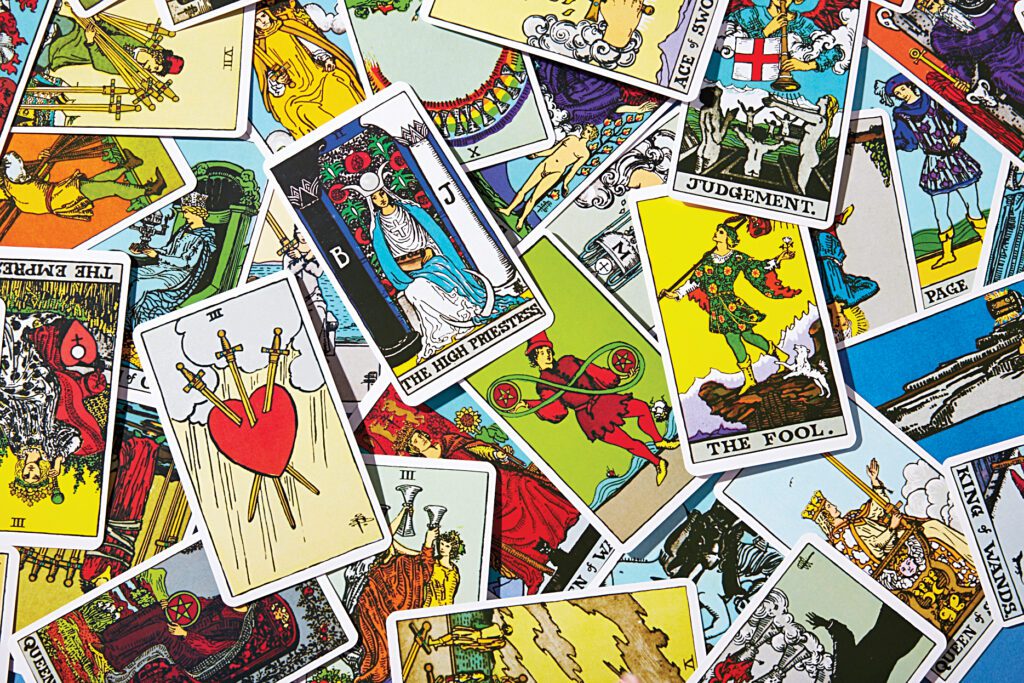
3. Curiosity Seekers and Open-Minded Individuals
3.1. Intellectuals
Intellectuals are individuals who value knowledge, critical thinking, and the pursuit of new ideas. They are often driven by a deep curiosity about the world and are open-minded enough to explore unconventional avenues of understanding. Tarot captivates their interest due to its historical significance, psychological depth, and symbolic language, making it an intriguing subject for intellectual exploration.
3.2. Artists and Writers
Artists and writers are often highly imaginative individuals who frequently draw inspiration from various sources. Tarot, with its rich imagery and archetypal themes, provides a wealth of inspiration for creative expression. Many artists and writers incorporate tarot symbolism into their work, finding it a powerful tool for storytelling, character development, and the exploration of human emotions.
3.3. Philosophers
Philosophers are individuals who engage in deep contemplation and reflection on fundamental questions about existence and the nature of reality. Tarot, with its profound symbolism and philosophical implications, offers a unique perspective on these inquiries. Philosophers may view tarot as a lens through which to explore concepts such as fate, free will, and the individual’s role in the grand scheme of things.
4. Those Looking for Guidance and Direction
4.1. Individuals Facing Life Transitions
Life transitions, such as career changes, relationship challenges, or personal transformations, can leave individuals feeling uncertain and in need of guidance. Tarot readings can provide a sense of clarity, offering insights and perspectives that aid decision-making and help navigate these transitional periods. People facing life transitions often turn to tarot as a source of comfort, support, and guidance during times of uncertainty.
4.2. People in Search of Self-Knowledge
Self-knowledge is a crucial aspect of personal growth and understanding. Many individuals seek to cultivate a deeper understanding of themselves, their strengths, weaknesses, and potential for growth. Tarot readings serve as a mirror for self-reflection, offering wisdom and insight into one’s subconscious desires, fears, and aspirations. It allows individuals to gain a greater understanding of their authentic selves.
4.3. Those Seeking Emotional Support
Emotional support is vital during times of distress or when individuals are navigating challenging emotions. Tarot readings provide a safe and non-judgmental space for individuals to explore their feelings and receive guidance. Whether it is exploring the root cause of their emotions or finding ways to cope with challenging situations, tarot can offer solace and guidance to those seeking emotional support.
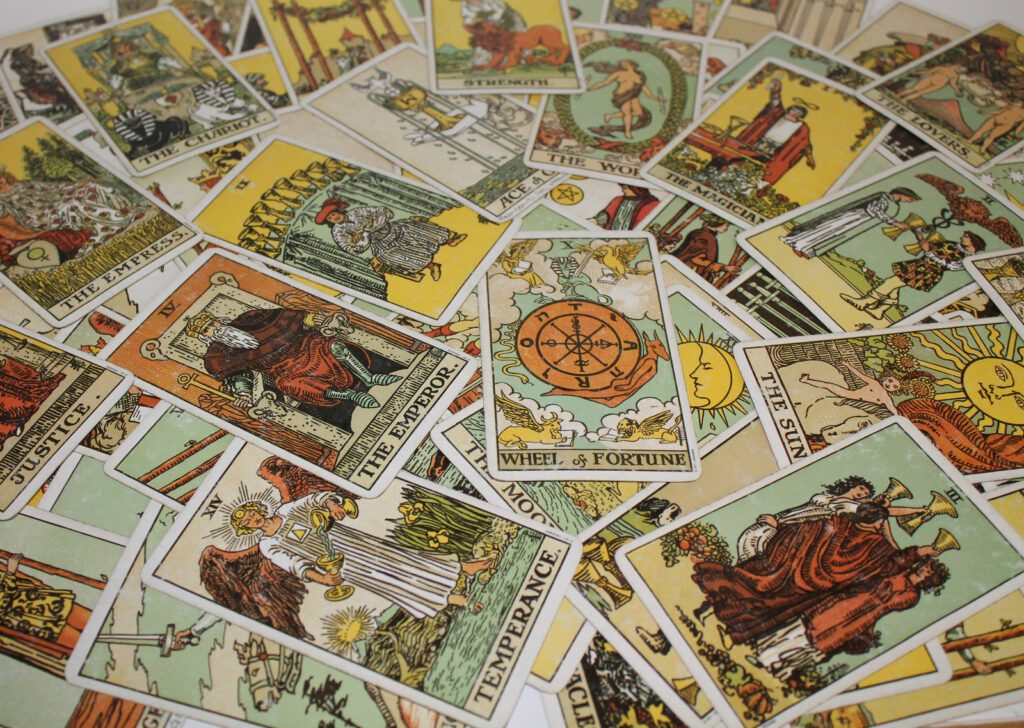
5. Believers in Ancient Wisdom and Divination
5.1. Followers of Hermetic Principles
Hermetic principles, derived from ancient Egyptian and Greek philosophy, emphasize the interconnectedness of all things and the pursuit of spiritual wisdom. Followers of Hermetic principles view tarot as a tool rooted in these ancient teachings, which can enable personal transformation and provide insights into the universal laws governing human existence.
5.2. Advocates of Astrology and Numerology
Astrology and numerology enthusiasts believe that celestial patterns and numerical symbolism hold significant influence over human life and events. Tarot, with its inherent connection to astrology and numerology through its use of archetypal symbols and numbers, resonates with these individuals. They believe that tarot can unveil hidden insights into the cosmic forces at play in their lives.
5.3. Practitioners of Other Divination Methods
Tarot is just one facet of the vast realm of divination practices that individuals explore to gain insights into the future or their current circumstances. Practitioners of other divination methods, such as tea leaf reading, palmistry, or rune casting, may also find value in tarot as a complementary tool in their divinatory toolkit. Tarot offers them an additional layer of symbolism and interpretation to complement their existing practices.
6. Individuals Interested in Psychology and Self-Reflection
6.1. Fans of Carl Jung’s Analytical Psychology
Carl Jung’s analytical psychology delves deep into the exploration of the subconscious and the power of symbols. Tarot, with its vast array of archetypal symbols, aligns closely with the principles of Jungian psychology. Fans of Jung’s work find tarot readings a means to gain insights into their unconscious minds, unveil hidden patterns, and achieve self-integration.
6.2. Personal Development Enthusiasts
Personal development enthusiasts are individuals actively engaged in their self-improvement and growth. They seek opportunities to expand their understanding of themselves and develop new skills. Tarot readings offer them a unique avenue for self-reflection and personal growth. By exploring the symbolism and messages of the cards, they can gain new perspectives that inspire personal transformation and self-empowerment.
6.3. Individuals Exploring the Subconscious Mind
The subconscious mind holds a wealth of untapped wisdom and influences our thoughts, behaviors, and emotions in profound ways. Individuals who are fascinated by the power of the subconscious turn to tarot as a means of exploring this hidden realm. Tarot readings can help individuals uncover subconscious motivations, fears, and desires, providing a deeper understanding of their own psyche.
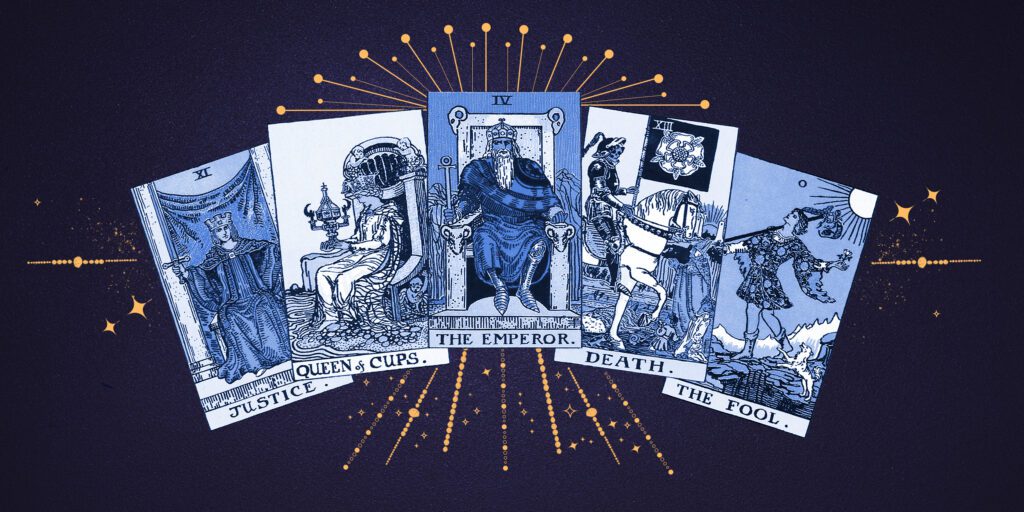
7. People with Cultural and Historical Interests
7.1. History Buffs
History buffs have a keen interest in the events, people, and cultural practices of the past. Tarot, with its origins dating back to the 15th century, offers a rich historical context for exploration. History buffs may delve into the origins, evolution, and cultural significance of tarot, gaining insights into the role it played in various historical periods and societies.
7.2. Folklore Enthusiasts
Folklore enthusiasts have a passion for the traditional beliefs, myths, and legends of different cultures. Tarot’s imagery draws upon various mythological, cultural, and religious symbols, making it a fascinating subject for folklore enthusiasts. They may explore the connection between tarot and folklore, examining the stories and traditions that have influenced tarot’s symbolism and interpretation.
7.3. Cultural Anthropologists
Cultural anthropologists study the beliefs, practices, and social structures of different cultures. Tarot readings, deeply rooted in cultural contexts, offer a lens through which cultural anthropologists can examine the beliefs and values of specific societies. By studying the cultural implications of tarot, anthropologists gain insights into the human need for guidance, symbolism, and the search for meaning.
8. Tarot Readers and Practitioners
8.1. Professional Tarot Readers
Professional tarot readers have dedicated their lives to mastering the art of tarot interpretation. They provide readings to clients seeking guidance, validation, or spiritual insights. These readers have honed their intuitive abilities and possess a deep understanding of the symbolism and archetypal meanings of the tarot cards. Their expertise allows them to provide valuable and insightful readings for those seeking guidance.
8.2. Tarot Enthusiasts
Tarot enthusiasts are individuals who have developed a deep fascination with tarot. They may collect different decks, study the history and symbolism of tarot, and regularly perform readings for themselves and others. Tarot becomes a cherished hobby for enthusiasts, providing them with a means of personal exploration and a connection to the wider tarot community.
8.3. Followers of Tarot Symbolism
Some individuals are particularly drawn to the intricate symbolism within tarot decks. They find solace and inspiration in the profound narrative created by the tarot’s archetypal symbols. Followers of tarot symbolism spend time deciphering the deeper meanings of cards, exploring the stories they tell, and seeking personal insights based on their interpretations.
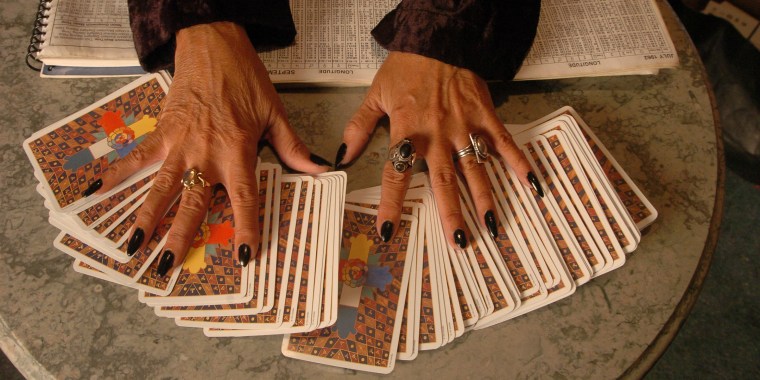
9. Individuals Seeking Alternative Perspectives
9.1. Critical Thinkers
Critical thinkers value independent thought, analysis, and skepticism. They often question traditional beliefs and seek alternative perspectives to gain a more comprehensive understanding of the world. Tarot, with its unorthodox approach to gaining knowledge and insight, appeals to critical thinkers as a tool to challenge preconceived notions and explore non-mainstream ideas.
9.2. Individuals Questioning Traditional Belief Systems
People who question traditional belief systems are open to exploring different spiritual or philosophical concepts and may find tarot appealing. Tarot provides them with a fresh lens through which to examine their own beliefs, challenge societal norms, and seek alternative paths to personal growth and understanding.
9.3. Open to Exploring Unconventional Ideas
Individuals with a natural curiosity and an openness to unconventional ideas often find themselves drawn to tarot. They are willing to explore different perspectives and dive into the realm of the unknown. Tarot readings offer them a gateway to explore uncharted territories of the mind and embrace the mysteries that lie beyond the confines of conventional thinking.
10. Those Drawn to Mystery and Magic
10.1. Fantasy Lovers
Fantasy lovers are captivated by magical worlds, mythical creatures, and enchanting narratives. The mystical and symbolic nature of tarot resonates deeply with their love for fantasy. Tarot cards provide them with a tangible connection to the imaginative realms they adore, allowing them to explore their fascination with magic and the unknown.
10.2. Occult and Magick Practice Enthusiasts
Occult and magick practice enthusiasts incorporate esoteric knowledge and rituals into their spiritual paths. Tarot, with its esoteric symbolism and associations with magical practices, aligns closely with their beliefs and practices. They view tarot as a tool for divination, spellwork, and connecting with higher forces.
10.3. Supernatural and Paranormal Believers
Individuals who believe in the supernatural and paranormal often find tarot intriguing. They see tarot as a means to tap into a realm beyond the mundane, to gain insight from unseen forces, and to communicate with spirits or guides. Tarot readings become part of their exploration of the supernatural, pushing the boundaries of what is considered possible.
In conclusion, the belief in tarot extends to a diverse range of individuals from skeptics and non-believers to spiritually inclined individuals, curiosity seekers, those looking for guidance, believers in ancient wisdom, psychology enthusiasts, people with cultural and historical interests, tarot readers and practitioners, individuals seeking alternative perspectives, and those drawn to mystery and magic. The appeal of tarot lies in its ability to provide guidance, insight, and self-reflection, as well as its connection to symbolism, spirituality, and the exploration of the human experience. Whether it is used as a psychological tool, a means to explore alternative spirituality, a source of comfort and support, or a doorway to mystery and magic, tarot resonates with a wide range of people seeking a deeper understanding of themselves and the world around them.
